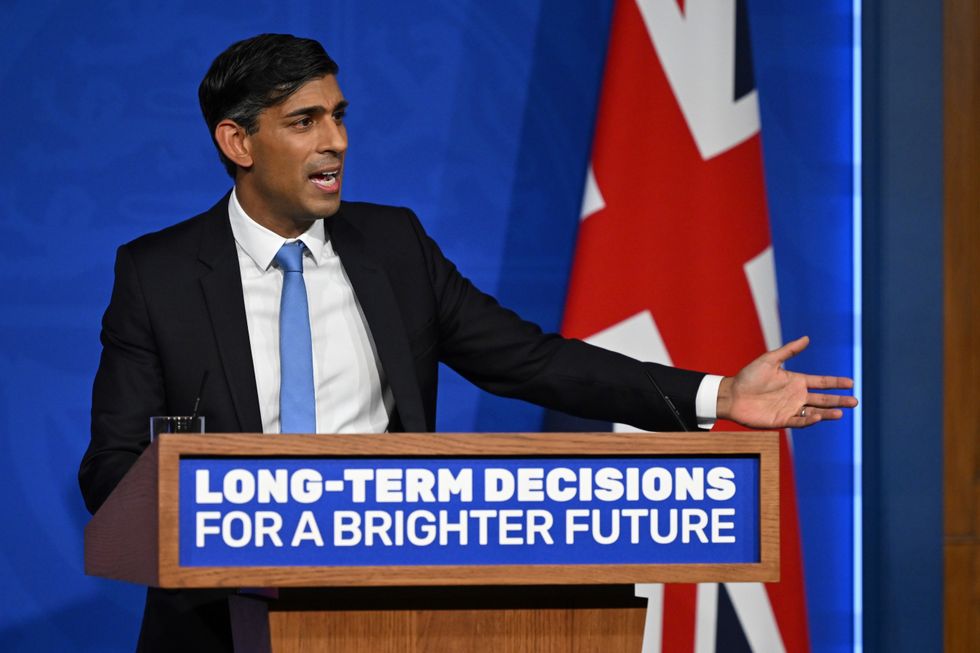
The ZEV mandate could see car makers fined if they do not hit targets
PA
Experts are now calling on car makers to accelerate the rollout of new electric vehicles
Don't Miss
Most Read
Trending on GB News
The Government has confirmed that the Zero Emission Vehicle mandate will remain in place despite the Prime Minister changing dates for the petrol and diesel car ban.
This was part of a larger overhaul of net zero pledges, with the Prime Minister saying the UK would still hit the environmental targets in 2050.
After criticism from many in the automotive industry, the Business Secretary has confirmed a key electric vehicle plan will continue to go ahead.
WATCH NOW: Jacob Rees-Mogg on net zero backtrack
The Zero Emission Vehicle (ZEV) mandate will continue to go ahead, with plans for it to be introduced next year.
Kemi Badenoch, the business and trade secretary, confirmed that Government policies to support the uptake of electric vehicles will remain in place, the BBC reported.
The ZEV mandate will require car makers to have a proportion of total vehicle sales be electric based on specific deadlines.
From 2024, 22 per cent of new car sales and 10 per cent of new van sales must be zero emission.
Manufacturers will then need to increase EV sales annually, reaching 80 percent of car sales in 2030 and 100 per cent in 2035.
This is being done to ensure motorists and car makers are prepared for the widespread switch to electric vehicles.
Changes could still be made to the layout of the ZEV mandate, with the Department for Transport yet to publish the results of a consultation launched earlier this year.
Reacting to the continuation of the ZEV mandate, Ginny Buckley, founder and CEO of Electrifying.com, said it was critical for the scheme to continue.
She said: “Despite the Government performing a handbrake turn on the 2030 ban on the sale of new petrol and diesel cars, the car industry can’t afford to take its foot off the gas when it comes to selling electric cars due to stringent Government targets that are set to stay.
“This may not be the route manufacturers were hoping for, but with clarity on the road ahead, they need to focus on getting more affordable models to market as we know this is holding back many consumers from making the switch.”
A recent survey of 11,000 drivers found that 87 per cent of drivers felt that electric cars were too expensive, with the TV presenter saying this needs to be addressed urgently to ensure car makers hit targets.
Most new electric vehicles will come with a cover price of over £30,000 and are often more expensive than petrol and diesel counterparts.
Ginny Buckley continued, saying: “An additional 70 per cent of the drivers we surveyed told us they lacked confidence in our public charging infrastructure.
“So despite the delay to 2030, we can't afford to slow down on the roll out of both local and national infrastructure.
LATEST DEVELOPMENTS:

Rishi Sunak confirmed the sale of new petrol and diesel vehicles would be allowed until 2035
PA
“To give the UK car industry a fighting chance of meeting its targets, the Government needs to take decisive action and speed up the planning process and grid connections that are holding back this critical rollout and damaging consumer confidence.”








